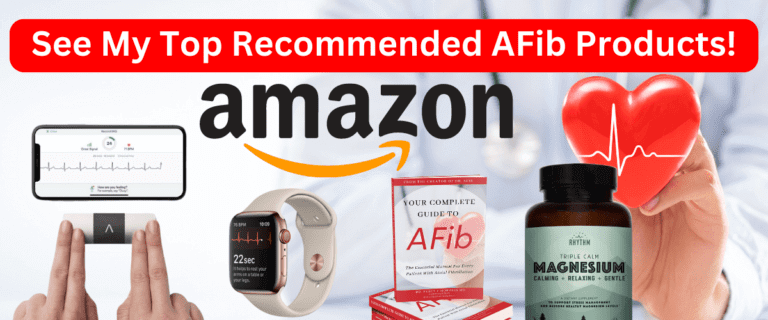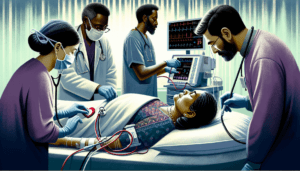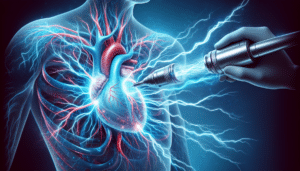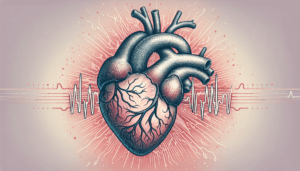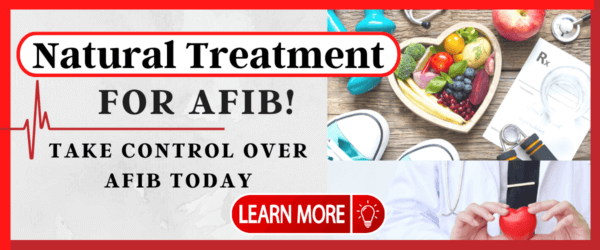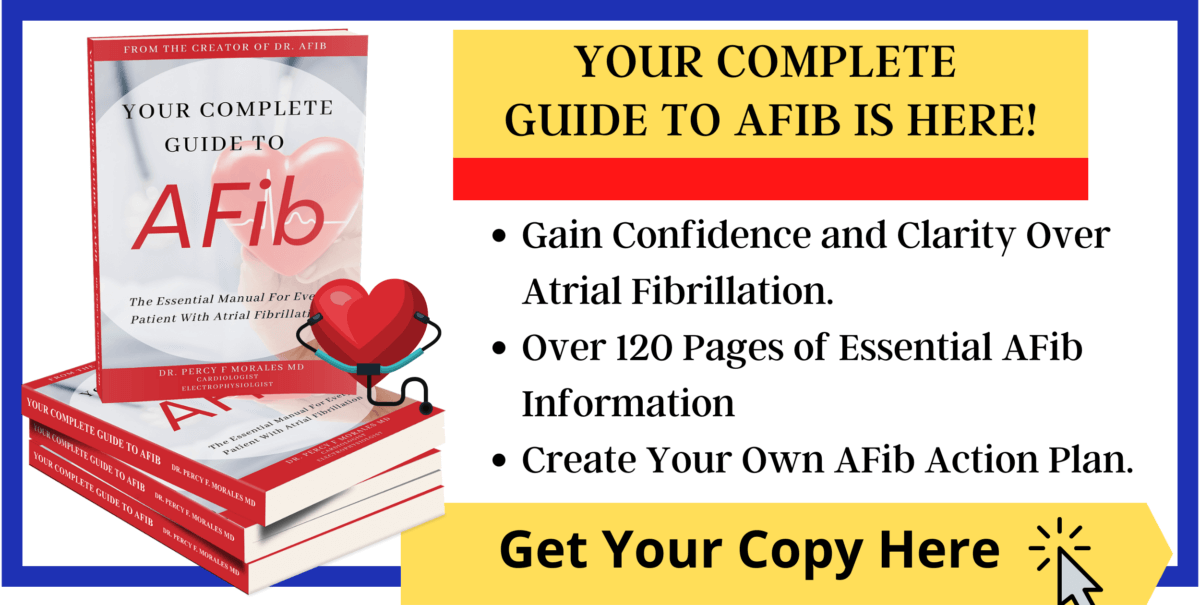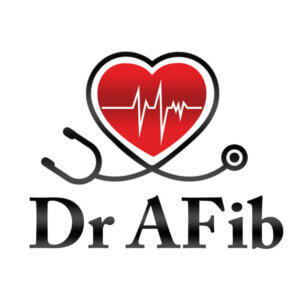Read essential tips about living with AFib in this article. There are millions of people across the world living and struggling with atrial fibrillation every day. If you have been diagnosed with atrial fibrillation, chances are you know someone as well, who is also struggling with this very common heart arrhythmia. Patients with atrial fibrillation frequently struggle with symptoms of sudden onset of heart palpitations, as well as shortness of breath. Sometimes symptoms are so severe that people seek urgent medical attention in the doctor’s office or even emergency room or hospital. If you frequently struggle with episodes of atrial fibrillation, you may feel lost or feel that there is nothing that you can do to help with your atrial fibrillation, but there are many tips that I can give you to help you with living with atrial fibrillation. The following are tips based on several years of experience treating thousands of patients with atrial fibrillation, as well as feedback from my growing Facebook community. Here you will find tips from several people who are living with atrial fibrillation that describe what best worked for them.
1. Find the Right Treatment For You.
There are a wide variety of treatment options when it comes to atrial fibrillation and there is no one size fits all. When it comes to atrial fibrillation, there’s not one treatment that works for everyone. It is impossible to describe AFib treatments and say that everyone should get a catheter ablation, for example, and everyone will have the exactly same results. Treatment success can be very different from person to person, so you need to find the right treatment that works for you. The right treatment for you may include medical therapy or may involve procedures such as catheter ablation, or perhaps lifestyle modifications. In addition, if your current treatment is not working, then it is always fair to investigate other treatment options or even get a second opinion. Lastly, the treatment strategy when you first get diagnosed with AFib does not necessarily mean that this is your forever treatment. Treatments need to be frequently adjusted based on your clinical situation.
2. Understand Your Risk of Stroke.
Although there are very severe symptoms associated with atrial fibrillation, such as heart racing, shortness of breath as well as dizziness, the risk of stroke is the most dangerous risk of having atrial fibrillation. Patients with atrial fibrillation have significantly increased risk of stroke, but risk of stroke is very individualized and usually determined by using the CHADS-VASc risk score calculator. It is crucial for you to understand your own individual risk of stroke, as well as typical recommended treatment options. For most patients, blood-thinning medications will be recommended in order to reduce risk of stroke. It’s very important for you to understand your individual risk of stroke, as well as benefits of blood thinning medications, as well as potential risks for blood thinning medications as well.
Your Complete Guide To AFib: The Essential Manual For Every Patient With Atrial Fibrillation
$15.95 (as of May 30, 2025 13:51 GMT -06:00 – More infoProduct prices and availability are accurate as of the date/time indicated and are subject to change. Any price and availability information displayed on [relevant Amazon Site(s), as applicable] at the time of purchase will apply to the purchase of this product.)
3. Understand The Benefits and Risks of AFib Medications.
It is important for you to take your medications as prescribed by your doctor, however, medications frequently need to be adjusted. Some medications have very good safety profiles whereas other stronger medications for atrial fibrillation can have significant long-term use side effects as well as toxicities. For example, beta-blockers, which are commonly used for atrial fibrillation may cause symptoms such as fatigue, but are very unlikely to cause dangerous side effects. On the other hand, stronger medications, including amiodarone and digoxin, can be very useful for managing atrial fibrillation, but they have significant toxicity profiles. They need to be managed very closely and potentially stopped when no longer needed. In addition, it is always important to understand the risk and benefits of blood thinning medications used for stroke risk reduction.
4. Identify Your Personal Triggers for Atrial Fibrillation.
Patients who have paroxysmal atrial fibrillation have episodes that come and go and can be frequently linked to triggers. People have a wide variety of triggers. So, it’s very important for you to be a detective, to figure out what is most likely triggering your AFib episodes. Some common triggers for people can include dehydration, any type of illness such as a cold or flu, certain types of food, including spicy foods. Also, artificial ingredients, such as artificial sugars can trigger some people’s AFib. To read more check out my article on AFib triggers.
5. Put an Emphasis on Lifestyle Modifications.
In my opinion, part of the reason that patients receive incomplete results with medications, as well as even some procedures for AFib, is because there’s not enough emphasis put on lifestyle modifications for every patient. There’s a wide variety of data that demonstrated that lifestyle modifications, which can include improving your nutrition, as well as losing weight can particularly make a huge difference for atrial fibrillation. So, identifying how you can improve your diet can make a significant improvement in your atrial fibrillation and in some cases can make more of a benefit than any type of medication or procedure can.
If you are interested in natural treatment options for atrial fibrillation and are highly motivated in improving your symptoms naturally, to reduce your need for medications or even procedures, then take a look at my one of a kind, online educational program, Take Control Over AFib.
Start off here to watch a free, no commitment, online workshop and see if this program is right for you. Thinking about lifestyle modifications is easy, but putting in place a system to keep you committed to achieve real results takes time and dedication, and with my step-by-step plan, we can achieve powerful and long-lasting results.
6. Reduce or Even Abstain From Alcohol Usage.
Alcohol usage is found to be a significant trigger for atrial fibrillation. Alcohol use, in particularly intoxication and binge drinking can easily trigger AFib episodes. However, recently it has been recently discovered in a research study that even chronic frequent drinking, even if it’s small quantities, can significantly increase atrial fibrillation risk as well. As a result it is more crucial then ever to abstain or severely reduce alcohol intake.
7. Quit Smoking.
Smoking can have a significant risk for increasing risk for atrial fibrillation as well as frequency of symptoms. In addition, smoking can also significantly risk of stroke. Quitting smoking is easier said than done, but the overall benefits when it comes to your AFib as well as other heart disease, can be significantly lowered after quitting smoking.
8. Understand How Stress Affects Your AFib.
In general it is not the stress itself that causes or triggers AFib, but in the way you respond to stress. We all have friends, family members, or jobs that lead to increased stress. But the way you let stress affect you can have very real physical consequences and can trigger AFib. If you get upset or anxious about something, you may then increase you blood pressure and risk an AFib episode. In addition, people who are stressed are more likely to sleep less, drink more alcohol, or eat more junk food. All of these add to increased risk of developing AFib episodes. In addition, methods to reduce stress, including yoga and meditation, have been shown to improve AFib symptoms in clincal studies.
9. Obtain Expert Consultation From An Electrophysiologist.
Electrophysiologists are experts in atrial fibrillation and can best describe to you treatment options and to see if you’re a candidate for either a stronger AFib medications or even procedures such as catheter ablation procedures. In addition, electrophysiologists are experts in emerging treatments and procedures such as left atrial appendage closure procedures. The earlier in your disease process you obtain expert consultation with an electrophysiologist, the more treatment options will be available to you. In addition, the earlier you seek treatment options, the higher the success rate of these treatments.
10. Join AFib Support Groups.
You are not alone while living with AFib. There are many support groups available, including my own personal Facebook group. There are also several well-known support groups, including stopafib.org. In these support groups, you’ll be connected with similar patients who are diagnosed with atrial fibrillation, to provide not only support, but these support groups can also help you learn more about emerging treatment options.
11. Don’t Delay Getting Treatment.
I’ve had several patients who have described to me that they had symptoms for weeks or even months before they finally seek treatment. Whether that’s in the doctor’s office or in the hospital, the longer you wait with AFib, the more damage AFib can do to your heart. It is essential to get treatment as early as possible because that’ll improve the success rate of any treatment.
12. Know When To Get Urgent Medical Attention.
Sometimes it’s not always that exact heart rate which defines urgent emergency room treatment. Usually it is more due to your symptoms that requires urgent medical attention, such as shortness of breath, as well as dizziness. I’ve had several patients who have had rapid heart rates for several weeks at a time, which are perfectly stable for outpatient medical therapy. Thus it is actually more of your symptoms, which drive a need for more urgent medical attention in an emergency room setting.
In conclusion, I hope that these 12 steps help you on your path to make significant improvements in your AFib symptoms. Always search for your own personal causes and together with your doctor, search for the right treatment options. If you would like my help in implementing evidence-based natural treatment options for reversing atrial fibrillation, check out my program, Take Control Over AFib. Learn more about my program here.
The Best Atrial Fibrillation Book
Your Complete Guide To AFib: The Essential Manual For Every Patient With Atrial Fibrillation
$15.95 (as of May 30, 2025 13:51 GMT -06:00 - More infoProduct prices and availability are accurate as of the date/time indicated and are subject to change. Any price and availability information displayed on [relevant Amazon Site(s), as applicable] at the time of purchase will apply to the purchase of this product.) The A to Z guide on everything you need to know about atrial fibrillation. Written by AFib expert Dr. Percy Morales MD. Over 120 pages of essential information on medications, procedures, and lifestyles modifications for AFib. Easy to read for every patient.
Shop AFib Products on Amazon
KardiaMobile 6-Lead Personal EKG Monitor – Six Views of The Heart – Detects AFib and Irregular Arrhythmias – Instant Results in 30 Seconds – Works with Most Smartphones - FSA/HSA Eligible
13% Off
KardiaMobile 1-Lead Personal EKG Monitor – Record EKGs at Home – Detects AFib and Irregular Arrhythmias – Instant Results in 30 Seconds – Easy to Use – Works with Most Smartphones - FSA/HSA Eligible
$79.00 (as of May 30, 2025 13:51 GMT -06:00 - More infoProduct prices and availability are accurate as of the date/time indicated and are subject to change. Any price and availability information displayed on [relevant Amazon Site(s), as applicable] at the time of purchase will apply to the purchase of this product.)
Apple Watch Series 9 [GPS 41mm] Smartwatch with Storm Blue Aluminum Case with Silver Sport Band M/L. Fitness Tracker, Blood Oxygen & ECG Apps, Always-On Retina Display
(as of May 30, 2025 07:03 GMT -06:00 - More infoProduct prices and availability are accurate as of the date/time indicated and are subject to change. Any price and availability information displayed on [relevant Amazon Site(s), as applicable] at the time of purchase will apply to the purchase of this product.)
Fitbit Sense 2 Advanced Health and Fitness Smartwatch with Tools to Manage Stress and Sleep, ECG App, SpO2, 24/7 Heart Rate and GPS, Shadow Grey/Graphite, One Size (S & L Bands Included)

OMRON 2-in-1 Upper Arm Blood Pressure Monitor & 1-Lead EKG Monitor - Clinically Validated Blood Pressure Arm Cuff & Machine - Use OMRON Connect App
17% Off
Samsung Galaxy Watch 6 44mm Bluetooth Smartwatch, Fitness Tracker, Personalized HR Zones, Advanced Sleep Coaching, Heart Monitor, BIA Sensor, Health Wellness Insights, Big Screen, US Version, Graphite
52% Off $329.99 (as of May 30, 2025 19:16 GMT -06:00 - More infoProduct prices and availability are accurate as of the date/time indicated and are subject to change. Any price and availability information displayed on [relevant Amazon Site(s), as applicable] at the time of purchase will apply to the purchase of this product.)
Natural Rhythm Triple Calm Magnesium 150 mg - 120 Capsules – Magnesium Complex Compound Supplement with Magnesium Glycinate, Malate, and Taurate. Calming Blend for Promoting Rest and Relaxation.
$20.77 ($0.17 / Count) (as of May 30, 2025 15:34 GMT -06:00 - More infoProduct prices and availability are accurate as of the date/time indicated and are subject to change. Any price and availability information displayed on [relevant Amazon Site(s), as applicable] at the time of purchase will apply to the purchase of this product.)
Pure Encapsulations Magnesium (Glycinate) - Supplement to Support Stress Relief, Sleep, Heart Health, Nerves, Muscles, and Metabolism* - with Magnesium Glycinate - 180 Capsules
$44.60 ($0.25 / Count) (as of May 30, 2025 07:03 GMT -06:00 - More infoProduct prices and availability are accurate as of the date/time indicated and are subject to change. Any price and availability information displayed on [relevant Amazon Site(s), as applicable] at the time of purchase will apply to the purchase of this product.)
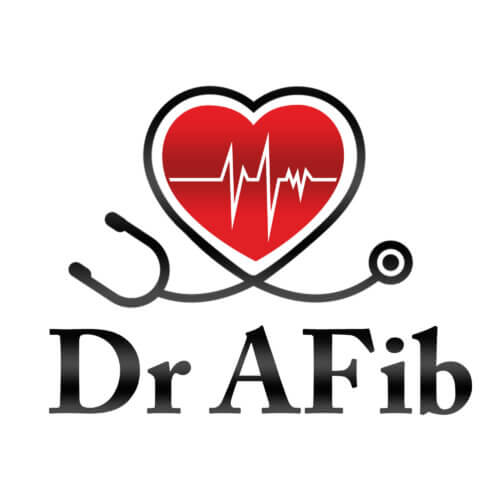















![Apple Watch Series 9 [GPS 41mm] Smartwatch with Storm Blue Aluminum Case with Silver Sport Band M/L. Fitness Tracker, Blood Oxygen & ECG Apps, Always-On Retina Display #1](https://m.media-amazon.com/images/I/311xwtp4mFL._SL100_.jpg)
![Apple Watch Series 9 [GPS 41mm] Smartwatch with Storm Blue Aluminum Case with Silver Sport Band M/L. Fitness Tracker, Blood Oxygen & ECG Apps, Always-On Retina Display #2](https://m.media-amazon.com/images/I/41j+8AaUGsL._SL100_.jpg)
![Apple Watch Series 9 [GPS 41mm] Smartwatch with Storm Blue Aluminum Case with Silver Sport Band M/L. Fitness Tracker, Blood Oxygen & ECG Apps, Always-On Retina Display #3](https://m.media-amazon.com/images/I/41jIyxZitnL._SL100_.jpg)
![Apple Watch Series 9 [GPS 41mm] Smartwatch with Storm Blue Aluminum Case with Silver Sport Band M/L. Fitness Tracker, Blood Oxygen & ECG Apps, Always-On Retina Display #4](https://m.media-amazon.com/images/I/41IpNJERjCL._SL100_.jpg)
![Apple Watch Series 9 [GPS 41mm] Smartwatch with Storm Blue Aluminum Case with Silver Sport Band M/L. Fitness Tracker, Blood Oxygen & ECG Apps, Always-On Retina Display #5](https://m.media-amazon.com/images/I/31o17yhfYpL._SL100_.jpg)




























